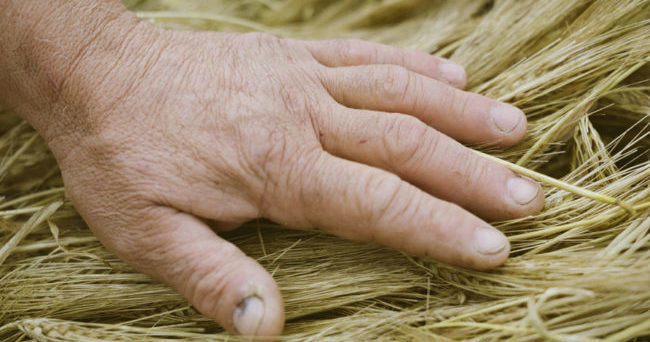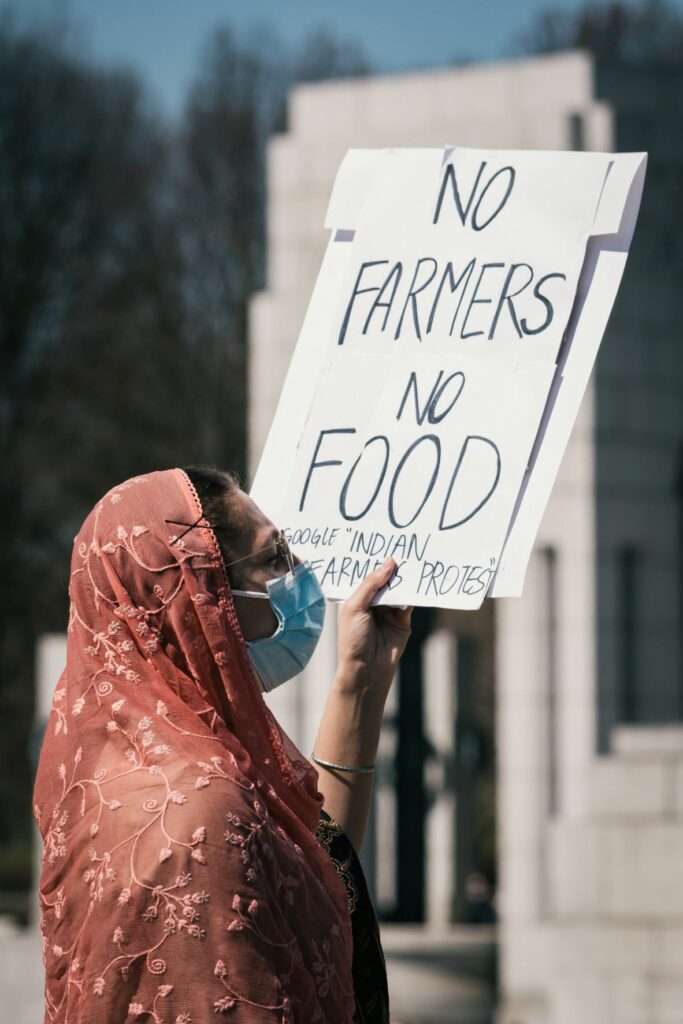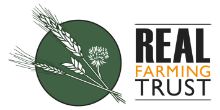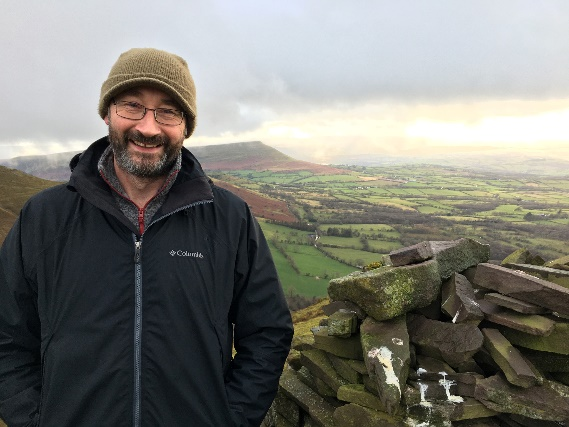
[Real] Farming: It’s only human
By Ian Rappel
The College for Real Farming and Food Culture is developing from the grassroots. College Director Ian Rappel welcomes you to the debate
It is a truism that farming is crucial to human society. For millennia, our species’ unique co-operative ability to produce and process agricultural yields has placed farming firmly at the centre of the activities that pass civilisation down from one generation to the next. But farming’s central role in our humanity goes beyond just guaranteeing the nutritional needs of historical continuity or social reproduction. For most of the Earth’s 7.8 billion people, our impulses to develop culture, to enjoy leisure, to create livelihoods that go beyond the struggle for day-to-day sustenance; all – and more besides – are determined by our agrarian abilities to manipulate nature for food, water, clothing, shelter and other needs.
Farming makes us human. Without access to nutrition and other components of our socially generated food web, humans are quickly reduced to a sub-animal state. Extreme disruptions to our food chains and their associated livelihoods – whether resulting from wars, economic sanctions, extreme weather, climate change or so-called ‘market failures’ – can create Biblical famines. But failures to get farming and food production right have more subtle and insidious consequences when they meet other social stresses; the mundane poverty and inequality created under neoliberalism have enhanced the sibling crises of under- and over-nourishment that are hurtling disadvantaged children into lifelong health disaster zones.
Given its historical importance, it’s perhaps unsurprising that farming and food production also play their parts in our dynamic political histories. When our food chain is under stress, the availability, costs and prices of food – linked as they are to the vagaries of climate, trade and commodity markets – have provoked conflict, protests, strikes, revolts and revolutions.

Farming also defines our influence on the living earth. Our food chain – from soil to stomach, from ocean floor to platter – has historically shaped our relationship with living nature and continues to do so. Through thousands of years of agricultural manipulation – the push and pull of nature around us – we have come to dominate the planet’s ecology, to shape the biosphere, and to lay down the bases on which the rest of life must interact with and adapt to humanity, for good or ill.
The Anthropocene may have been realised through climate change, but it is being shaped on the ground by farming and its political contexts.
How do we counter ‘business as usual’?
Agriculture, then, has become key to our human survival, and its importance in our lives is real whether we are farmers, processors, or consumers. But how is it that the centrality of agriculture receives such little serious attention from mainstream media and politics? Why is our increasingly irrational neoliberal food chain uncritically promoted as the only way to support human society and civilisation? How has a system of ‘intensive’ farming that so obviously abuses the world’s soils, biodiversity, human labour and health come to be described as ‘conventional’ when it is barely 70 years old? How can we counter the mainstream offer of nothing but a profit-orientated business as usual? Why are some of us looking to technology to fix agriculture’s rift with the biosphere when ecology holds the key? What, crucially, are the genuine alternatives that can promote ‘good food, for everyone, forever’?
There is much to say. Yet the answers to such questions cannot come solely from the written word – from blogs, articles or books – no matter how well-intentioned and inspiring these sources can be. They require the development of an international, democratic, and concerted social movement for agroecology and food sovereignty. A movement – or more accurately a movement of movements – whose life stretches as far into the future as necessary (and that is very far indeed). And one that not merely endures despite its inevitable defeats and outstanding victories, but learns and reflects on communal and individual lessons that range from the ecological to the political.
An atmosphere of learning
For over a decade, the Oxford Real Farming Conference (ORFC) and the Real Farming Trust (RFT) have played key roles in the development of such a movement. ORFC’s annual festival of farming sanity has brought practitioners, theorists and activists together in ways that have inspired and shaped much of the discourse around agroecology and food sovereignty both across the UK and internationally.
ORFC, as counter to the Establishment’s corporate carnival at the Oxford Farming Conference, provides us with a platform to bring progressive farming into the light. It creates an atmosphere of learning where farmers and others can hear and interrogate practitioners of agroecology. It helps develop a cooperative network of solidarity and empathy for small farmers around the UK and the globe, to resist big agribusiness and its political apologists. It provides safe spaces to critique, explore and counter the myriad initiatives and innovations that pour forth from the corporate and neoliberal mainstream – from the economists’ fantasies of nature financialisation to the dystopian techno-fix ‘solutions’ of robotics and lab-grown food. In the depths of each winter, ORFC is a warm meeting place and festival for radical optimism, dialogue and conviviality.
The atmosphere at the end of each ORFC is rightly celebratory, and we all return to our fields, our farms and whatever else we do uplifted and hopeful. But the fact that we have been restricted to that annual fix is ORFC’s one major weakness. Our batteries may have been recharged but as the months and seasons go by, we are forced to witness neoliberal farming and food systems forging ahead at the expense of sustainable livelihoods and the biosphere.
Lately, we’ve even been forced to watch fellow activists – who should know better – blame all farming for our planetary woes, despite the obvious fact that it is specifically the neoliberal model of intensive industrial farming that is leading us into a dead-ended and ecocidal Anthropocene.
To bolster the annual spike of hope during ORFC, we need something that carries its spirit and radicalism across the full calendar. Our shared lessons from progressive farming and our sharp critiques of the mainstream need to be maintained throughout the year, if only so that the reflex arc of our emerging movement is shortened and honed.
In 2022, the College for Real Farming and Food Culture has been launched by the Real Farming Trust to provide that year-round platform through its website, blogs, podcasts and online seminars. We are in a pilot phase where we will be exploring the form and function of the College, so your views and ideas will be essential and greatly welcomed.
Debating crucial issues
In addition to web-based work, we want to develop platforms and events that explore the theoretical and practical issues facing us all. We are currently experimenting with Dialogue formats that facilitate a ‘deep-dive’ around major perennial issues such as wildlife and farming, as well as emerging fields like nature financialisation. These Dialogues will provide space for issues to be explored through open seminars that bring together farmers, academics and activists so that we develop mutual understanding as well as relevant positions. Alongside the dissemination of findings from such Dialogues, we will be doing what we can to produce useful and accessible resources for farmers, activists and campaigners alike.
The College not only aims to analyse the factors that influence agriculture and our food directly, but to explore the root causes of our food chain’s dysfunctionality. Agriculture may be central to society’s continuity, but it is also framed and influenced by the political, economic and philosophical forces that shape the world – the wider societal context in which farming finds itself. The College needs to explore that wider pallet of human activity if we are to understand and counter the forces that, at present, prevent agroecology and food sovereignty from coming into being.
In that respect, the College will also challenge the assumptions, ideologies and moral norms that are driving society under our neoliberal era. We will interrogate first principles, from metaphysics to science, from morality to ecology, to ensure that our positive advocacy of Real Farming involves a complete rethink, a renaissance, for our food chain and not merely window dressing for the neoliberal status quo.
From the grass roots
One particularly significant area for intervention is the education system itself. The pedagogies and syllabuses that promote and reinforce so-called ‘conventional agriculture’ play important roles in today’s farming crises. In this vital area, the College will also work with the formal farm education sector to find ways to connect students to in-field learning and participatory action research opportunities. We aim to intervene in the learning process to counter the divisiveness of the mainstream, to reconnect the theoretical with the practical, and to give new and existing farmers access to the world of agroecology and food sovereignty.
In short, we are trying to develop a grassroots, democratic and empowering College for the Real Farming movement: An ambitious task that will depend on healthy debate, respectful dialogue and positive engagement across our broad movements and beyond. We are firm in our faith that such bottom-up educational and pedagogical initiatives are as essential to our humanity and a convivial Anthropocene as Real Farming itself.
Welcome all to the College!

